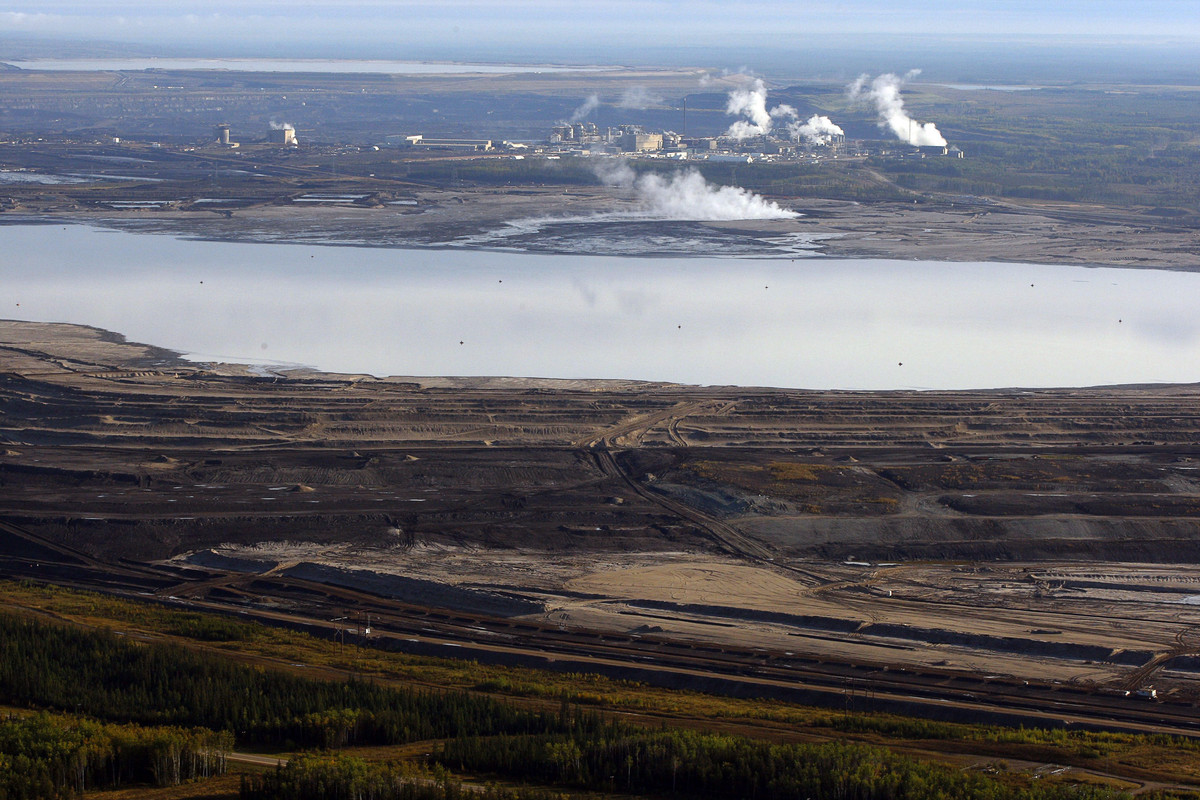 |
| There are currently more than 170 square kilometres of tailings ponds in Alberta. |
The chief and council for the Mikisew Cree have told Alberta Health that they won't take part in a long-promised, government-funded survey that would assess the health of people living in Fort Chipewyan and Fort McKay.
"They felt it would be too much control by Alberta or Canada, that at the end of the day we would not be satisfied," said spokesman George Poitras.
Poitras said the Mikisew wanted assurances the study would focus on community concerns over cancer rates, which many believe are elevated because of the presence of environmental toxins from the oilsands.
They also wanted a baseline health study, as well as promises local people would be involved and that the community would own the data.
The band council didn't get the assurances they needed, Poitras said.
"It is absolutely an issue of trust."
The three-year, $1.2 million study will still go ahead, said Howard May of Alberta Health.
"The University of Calgary is planning to conduct the community health assessment, and has applied for a grant," he said in an email.
"Subject to the grant application being finalized, the research team will work with the participating community members to develop the approach — and will lead this work. The assessment will be informed by the health priorities identified by the community."
The Athabasca Chipewyan, the Nunee Health Authority and the Fort McKay Metis remain committed to the study.
The project is different from what Mikisew wanted, said John Rigney, director of special projects for the Athabasca Chipewyan First Nation.
"Mikisew wants to focus more on the cancer side of things, which isn't the focus of this study," he said.
He said the project will take a broad look at health concerns in the two communities, from mental health to drinking water.
"There's a perception among us that there's an awful lot of cancer," he said. "We want to get to the root of that, but there's also other things we want to get to the root of."
Illnesses like arthritis and diabetes — which afflicts 10 per cent of Rigney's band — are also pressing concerns, he said.
The Alberta government has been promising a health study since Gene Zwozdesky, as provincial health minister, visited Fort Chipewyan in 2009.
Previous efforts to initiate a study have collapsed over disagreements about what it should study and who should run it.
Both Poitras and Rigney said the government's latest proposal came to them last summer out of the blue.
"It's frustrating at this end because the province comes to the community and says, 'We'll do the health study for you if you guys will sign this letter of intent,'" Rigney said. "But that means everybody has to follow (the province's) agenda and that's where the disagreement starts."
The issue of community health in the oilsands area is one of the main points repeatedly brought up by critics of the industry both in Canada and abroad.
The Alberta Cancer Board has found elevated rates of some types of cancer in Fort McKay and Fort Chipewyan. But the Royal Society of Canada found no evidence that specifically linked those rates to oilsands contaminants.
Poitras said the Mikisew will probably fund its own study.
That might work out fine, Rigney said.
"I don't see those studies conflicting. I don't see it as a bad thing."
Original Article
Source: huffingtonpost.ca
Author: Bob Weber
No comments:
Post a Comment